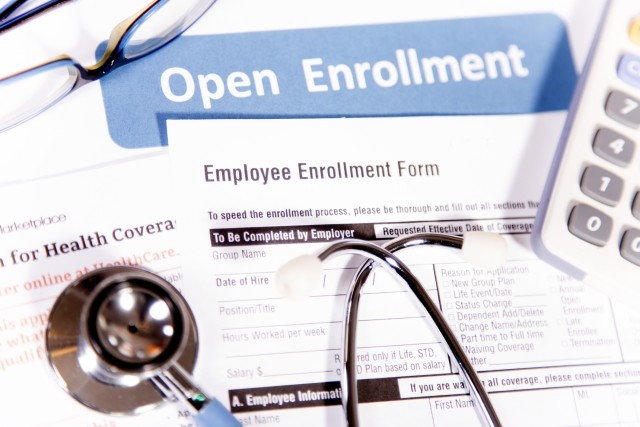Blog
Genetic Testing as Employee Benefits: Cancer's New Arch Enemy
Not long ago, you needed a private plane and reservations at an exclusive international clinic to get genetic testing. People who could afford the trip received state-of-the-art care which used screening and genetic testing to reveal potential life-threatening issues before they happened and included targeted, individualized treatment plans to preserve their health.

Luckily, access to these resources are expanding.
In terms of healthcare, genetic testing can show if a person has an inherited trait for cancer. Once identified, routine cancer screenings will indicate if cancer is present. When used together, these two tactics prepare people to be proactive by protecting their health and investigating treatment options early.
This predictive approach identifies multiple forms of cancer before the disease devastates human lives and finances. Predictive testing is readily available but is not included in most healthcare plans.
Predictive genetic testing is not recommended for everyone. However, for employees or dependents who believe they are susceptible to cancer, it is best for their health to find out quickly.
But what if you, as an employer, could offer genetic testing to your employees? Would it change the lives of your employees, avoid exponential claims costs, and improve your employees’ experience? The good news is yes, you can be proactive, reduce costs, and improve patient outcomes for some of the most severe diseases, including cancer.
Cancer Screenings are an Easy and Cost-Effective First Step
Routine screenings detect cancer in the early stages when treatment is more effective and less costly.
| Treating an early-stage cancer is about half the cost of treating a late-stage cancer. |
However, cancer screenings plummeted by 80% in the early months of the pandemic and are still significantly less than pre-pandemic screening levels.
One large health system in California offered home test kits for colorectal cancer to their system members to combat this problem. However, patients must still visit a medical facility to receive screenings for cervical, breast, ovarian, lung, and other cancers.
As people feel more confident about returning to the workplace and public places, you can encourage your employees to get back on schedule with their routine cancer screenings to protect their health and your bottom line.
| Your Woodruff Sawyer account team can work with you directly to establish a communication plan for your employees that will help increase employee screenings. |
Cancer Patients are Super-Users of Health Insurance Plans
The American Cancer Society estimates that 1.9 million new cancer cases will be diagnosed in 2021 and result in over 608,000 deaths. Cancer is the second most common cause of death in the US, with over 1,670 deaths per day based on 2017–2018 statistics. COVID-19 is expected to affect cancer diagnoses and deaths negatively but will require long-term studies to understand the pandemic’s full impact.
The National Cancer Institute estimates that direct costs amounted to $183 billion in 2015 and will increase to $246 billion by 2030, primarily due to population growth and aging. These expenses do not include prescription costs, which can be problematic as some cancer medications cost over $100,000 per prescription.
According to Lisa Lacasse, president of the American Cancer Society Cancer Action Network (ACS CAN), cancer patients are “super-utilizers of their insurance benefits,” with patients quickly reaching their out-of-pocket maximum. But employers pay too.
Cancer expenses account for 12% of employer healthcare spend for a disease that could have been potentially identified before the actual diagnosis. Unfortunately, we rely on a “sick care,” not a “preventative care” medical model. Employers pay the tab for direct medical care, prescription costs, and indirect costs like lack of productivity.
These growing costs are not sustainable for employees or employers. Genetic testing for cancer and other critical diseases is now available for the “everyday” person and can reduce costs for everyone. No more trips to Switzerland, just a cost-effective way to prevent cancer before it consumes more lives and financial resources.
How Can Genetic Testing Be Used Against Cancer?
While some cancer genes are inherited, others can mutate over time due to exposures to sunlight, tobacco, or asbestos. According to the American Cancer Society, cancer genes mutate for several reasons:
Acquired mutations only affect the cells that grow from the mutated cell. They do not affect all the cells in the person’s body. This means all the cancer cells will have the mutations, but normal cells in the body will not. Because of this, the mutations are not passed on to a person’s children. This is very different from inherited mutations, which are in every cell in the body—even the cells without cancer.
Predictive genetic testing is used for people who have been diagnosed with cancer due to a mutation, want to know if they inherited a genetic mutation, or are a relative of someone known to have an inherited genetic mutation. Unfortunately, traditional medical plans do not include predictive genetic testing.
| People who should consider predictive genetic testing include: |
|---|
| Several first-degree relatives (mother, father, sisters, brothers, children) with cancer |
| Many relatives on one side of the family who have had the same type of cancer |
| A cluster of cancers in the family that are known to be linked to a single gene mutation (such as breast, ovarian, and pancreatic cancers in your family). |
| A family member with more than 1 type of cancer |
| Family members who had cancer at a younger age than normal for that type of cancer |
| Close relatives with cancers that are linked to rare hereditary cancer syndromes |
| A family member with a rare cancer, such as breast cancer in a male or retinoblastoma |
| Ethnicity (for example, Jewish ancestry is linked to ovarian and breast cancers) |
| A physical finding that is linked to an inherited cancer (such as having many colon polyps) |
| A known genetic mutation in one or more family members who have already had genetic testing |
Predictive genetic testing is not recommended for everyone. However, for employees or dependents who believe they are susceptible to cancer, it is best for their health to find out quickly.
As an employer, you can get customized plans that include genetic testing for cancer and targeted treatment to help employees deal with the disease’s physical, mental, and financial impact. In addition, genetic testing plans do not require permission from traditional healthcare plans and can be used to augment your existing suite of benefits.
Innovative Cancer Benefits include Genetic Testing
Traditional medical plans typically don’t include genetic testing. These plans also don’t tell the cancer patient how to navigate the complex world of cancer treatment successfully. However, both are needed to help protect your employees’ health and provide positive outcomes.
Genomic Life provides employers with affordable solutions for complex health problems with their Cancer Guardian membership plan. The program focuses on actionable, positive outcomes by opening access to comprehensive genomic testing and cancer support specialists who personalize options, answers, and resources while providing reassurance during a difficult time. Employers can offer the Cancer Guardian program to their workforce as a company-paid or voluntary benefit for employees and dependents.
As Lynnette Martini, SVP, Sales and Business Development at Genomic Life explains, one in six people in the US have inherited genetic mutations that put them at risk for cancer or other serious conditions. But most medicine is practiced with little knowledge of the patient’s underlying genetic makeup.
This program makes clinical genetic testing accessible for your employees and provides them with the best chance to prevent and treat cancer and genetic diseases without incurring massive financial costs. As the employer, it can help to lower healthcare costs and improve health outcomes.
| Cancer Guardian members have a three-step approach for genetic testing and support: |
|---|
| Risk Assessment. Upon enrolling, members have access to inherited genetic testing to assess the risk of cancer and other genetic diseases and receive genetic counseling. |
| Action Plans. Patient advocacy and navigation connects members and their physicians with next steps and clinical action plans, leading to earlier detection, improving outcomes, and avoiding more costly interventions. |
| Advocacy and Target Treatment. If a member is diagnosed with cancer, they gain access to comprehensive genomic profiling of the cancer, a personal oncology nurse navigator, an expert pathology review, clinical trial searching and placement, and financial aid matching. Personalized support can mean improved chances of survival and improved outcomes. |
As the world returns to work, it’s time to encourage your employees to get their routine cancer screenings. Adding genetic testing to your benefits suite will protect their health with the additional benefit of providing innovative offerings to a hyper-competitive workforce.
Don’t forget: Enrollment season is just around the corner! As we all emerge from our “COVID Caves” we’d love to “see” you again. Just pick up the phone, schedule a call, or even an in-person meetup (where feasible) with an expert from Woodruff Sawyer Benefits.
Table of Contents








